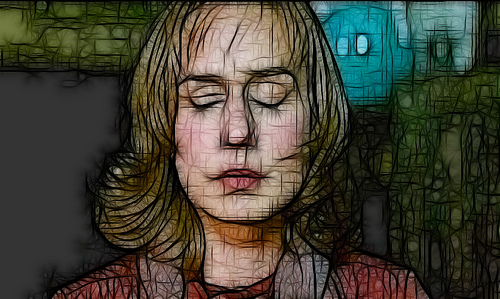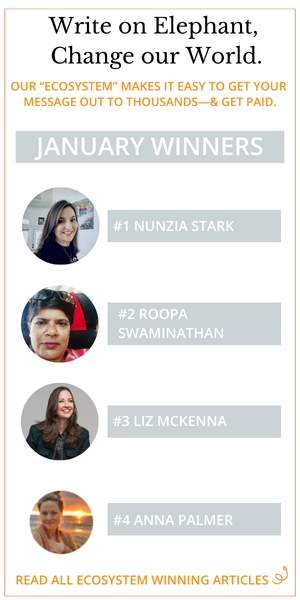
For those of us who struggle with anxiety, it seems to touch every facet of life.
When it’s strong enough, anxiety affects everything from our hearts and fatigue levels to our relationships. But here’s something you might not have known: anxiety affects our eyes too.
How Our Eyes Respond to Anxiety:
Suffering from even a slight panic attack is both emotionally and physically uncomfortable. When we feel anxious, our heart rate speeds up, our breathing gets shallow and sometimes all we can focus on is the immediate fear at hand.
But how can we tell if our eyes suffer too? We can begin by thinking back to anxious moments.
During these times, many of us experience:
- Pain in our eyes.
- Blurred vision.
- Sensitivity to light.
- Watery eyes.
- Eye floaters, spots and gray areas in our vision.
Sound familiar?
You might not have all of these symptoms (and truth be told, we can experience any of them without anxiety) but if you have anxiety and vision problems, it’s possible the two are connected.
Why Does This Happen?
During an anxiety attack, our muscles tighten and we may even hyperventilate. Not only does this upset our heart rate and cause fatigue, but it also puts pressure on our eyes. Why? Because when we tighten these muscles, blood vessels contract. This causes blurry vision and pain behind the eyes.
Simultaneously, in the heat of this anxious moment, we are subjected to our fight-or-flight instinct—the inherent stress to make the right decision, and to make it fast. This stress causes dilated pupils, which ultimately make us more sensitive to light and can create pain behind our eyes.
It all comes down to adrenaline —a hormone that gives us a readiness to jump to action at any given moment. Adrenaline isn’t a bad thing in and of itself because it gives us energy to survive intense situations. The trouble with adrenaline comes when we feel it in everyday situations, such as filing a report or making a meal. A regular dose of adrenaline can leave us (and our eyes) in constant pain.
Methods to Overcoming Anxiety and Promoting Eye Health:
The gospel truth is that we don’t have to live with anxiety—or the vision problems it can create—forever. We can overcome anxiety induced vision problems by finding ways to slow the encroaching feeling of panic when we recognize it.
We don’t have to go far in a Google search to realize that people have thousands of strategies for overcoming anxiety, including everything from thinking positive thoughts to paying for professional therapy. Let’s focus on five easy tactics that will help calm us down during anxious moments, and thus protect our eyes from panic.
1. Accept how you feel.
For many of us anxiety is a vicious cycle. We feel stress from a situation, and soon enough we just worry about the fact that we feel stressed to begin with. Break this cycle! When you feel tension threatening you, consciously accept that you feel uneasy—tell yourself that this anxiety is temporary and try to work through the emotion until it passes. This alone can help prevent further anxiety symptoms.
Hyperventilation puts pressure on the eyes, so focus on your breathing when you begin to feel anxious. Do this until your breathing slows and you feel in control again.
3. Channel your energy.
Anxiety equals adrenaline, so instead of settling for restlessness turn that adrenaline into action. Distract yourself from your fears with a hobby, sport, conversation or even chore. For me, moving around forces my brain to concentrate on something else. I often become so focused on the distraction that my breathing slows and my muscles relax, which gives my eyes some relief much needed relief.
4. Exercise.
What better way to put adrenaline to work than to exercise? Exercise isn’t just a distraction, it’s a way for us to physically work through intense emotions. When you feel apprehensive, go for a jog or hop onto the elliptical. Doing this has helped me loosen up tense muscles.
5. Consult a doctor.
Self-help goes a long way in dealing with anxiety, but consider seeking professional advice if you cant find a solution to your anxiety on your own. People suffer eye problems due to anxiety all over the world—from LA to Paris , and from Paris to Edmonton. Optometrists, dentists and other specialists know how to help. For example, my own optometrist gave me simple ideas for relaxing my facial muscles to help put me (and my eyes) at ease.
While it is possible to overcome anxiety, it is easier said than done. To work through anxiety, and to work at protecting your body from the physical stress anxiety inspires, try to take things one day, one situation, at a time. Personally, as I’ve done this, I’ve improved at recognizing impending stress and taking control of how I respond to it. As we work through anxiety, we bring relief to our eyes and enhance all other facets of life.
Love elephant and want to go steady?
Sign up for our (curated) daily and weekly newsletters!
Editorial Assistant: Brandy Mansfield / Editor: Rachel Nussbaum
Photo: Flickr
 Share on bsky
Share on bsky




Read 1 comment and reply